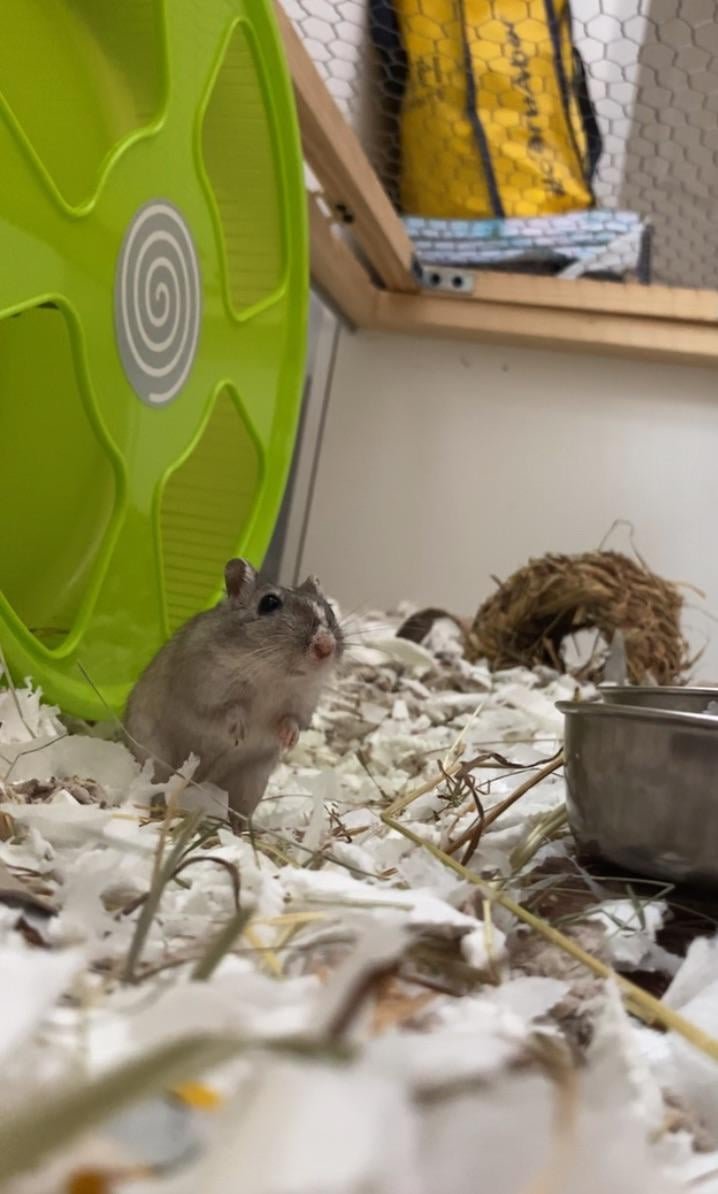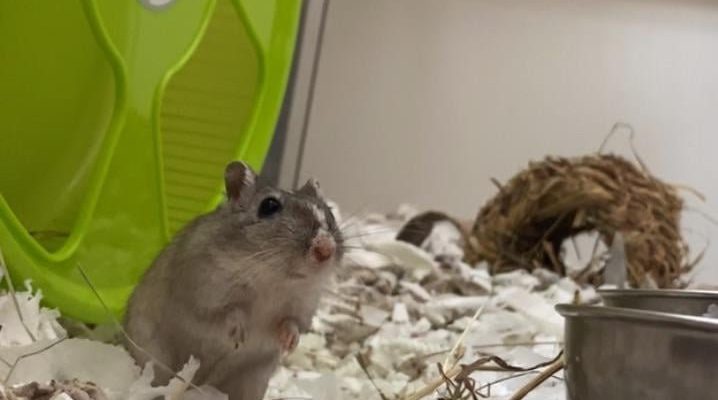
Imagine you’re at a new party, and everyone else seems to know each other. You’d likely feel a little anxious, right? Well, that’s how your gerbil might feel in a new environment. They rely on you to help them feel safe and secure. Just like you’d approach a new friend with kindness and understanding, you need to do the same with your gerbil. In this article, we’ll go through effective ways to connect with your pet, ensuring they feel comfortable enough to trust you.
Understanding Your Gerbil’s Behavior
Before jumping into bonding techniques, it’s essential to understand your gerbil’s natural instincts. Gerbils are prey animals, meaning they have a natural tendency to be cautious. They’re wired to be alert for any potential dangers, which might make them a bit skittish when you first bring them home. Here’s the thing: Recognizing these behaviors helps you meet them where they’re at.
When your gerbil’s whiskers twitch or it darts away when you approach, it’s not because it doesn’t like you—it’s simply doing what comes naturally. They may also show interest by standing on their hind legs or sniffing the air. These little behaviors are their way of saying, “I’m curious but still figuring things out.” If you take the time to observe these signs, you’ll be better equipped to create a bond on their terms.
Creating a safe space is crucial. Provide them with plenty of hiding spots in their cage, like tunnels or huts. This gives them a place to retreat and feel secure. Once they see that their home is a safe haven, they’ll begin to relax and explore more.
Creating a Comfortable Environment
A comfortable environment plays a big role in how your gerbil perceives you. Think of their cage as their castle—if it’s cozy and inviting, they’ll feel more at ease. Start by ensuring their living space is properly set up.
– Choose the right bedding: Use soft, absorbent bedding like aspen shavings or paper-based bedding. Avoid cedar or pine, as they can be harmful to your gerbil’s respiratory system.
– Add enrichment: Include toys, tunnels, and chewable items. Not only do these stimulate their mind, but they also make their environment more engaging.
– Maintaining cleanliness: Keep their cage clean, but don’t go overboard. Daily spot cleaning is great, but frequent full cleanings can stress them out by changing their familiar smells.
Once the cage feels like home, your gerbil will be more open to interacting with you. Remember, a happy gerbil is a more adventurous gerbil!
Gentle Handling Techniques
Now that you’ve set the stage for comfort, it’s time to work on handling. How you pick up and interact with your gerbil is critical in building trust. Here’s how to handle them gently:
1. Approach slowly: Instead of reaching in suddenly, take your time. Move slowly, allowing them to see your hand and get used to your presence.
2. Use a scoop method: When picking them up, gently scoop from underneath. This method gives them a feeling of security, as they’re being supported rather than grabbed.
3. Limit handling at first: In the beginning, keep handling sessions short—just a few minutes at a time. Increase the duration as your gerbil becomes more comfortable.
The more positive experiences your gerbil has with you, the stronger your bond will grow. Remember to talk softly and offer treats like sunflower seeds during these sessions. Positive reinforcement works wonders!
Building Trust Through Routine
While every gerbil is unique, many thrive on a routine. Establishing consistent handling and feeding times can help create predictability, which builds trust. If your gerbil knows what to expect from you, they’ll feel more secure. Here’s a simple way to establish your routine:
– Feeding time: Try to feed your gerbil at the same time every day. Use this time to talk to them or offer a small treat, making it a positive experience.
– Playtime: Set aside time each day for play outside the cage. A safe, enclosed area is perfect for letting your gerbil run around. Just be sure to supervise them closely!
– Daily interactions: Spend a few minutes each day just observing and talking to your gerbil. This helps them associate your voice with comfort and safety.
A regular routine not only builds trust, but it also encourages bonding. Over time, you’ll notice your gerbil becoming more relaxed and curious about you!
Recognizing Signs of Stress
Every pet has its limits, and it’s essential to recognize when your gerbil is feeling stressed. Look for signs that indicate they may need a break. Here are some common stress signals:
– Nervous behavior: If your gerbil is constantly burrowing, hiding, or darting away when approached, it may be feeling overwhelmed.
– Aggression: If your gerbil starts nipping or biting, it’s a clear sign they’re not comfortable. This could happen if you move too quickly or if they feel trapped.
– Excessive grooming: While grooming is normal, if you notice them doing it excessively, it might be a sign of anxiety.
If your gerbil shows these signs, give them space and time to calm down. When they seem more relaxed, you can slowly reintroduce handling or playtime. Remember, patience is key!
Using Treats to Foster Connection
Who doesn’t love a tasty treat? Using treats is a fantastic way to bond with your gerbil. Not only does it build trust, but it also creates positive associations with you. Here’s how to incorporate treats effectively:
– Choose healthy options: Gerbils enjoy a variety of treats such as fresh vegetables (like carrots or broccoli) and special gerbil treats available at pet stores. Avoid sugary or fatty snacks.
– Hand-feeding: Offer treats from your hand during bonding sessions. This helps your gerbil learn that you can be a source of good things!
– Reward good behavior: If your gerbil explores your hand or allows you to pet them, reward them with a treat. This encourages more curious behavior in the future.
Just remember, moderation is key. Too many treats can lead to health issues, so keep them as a fun addition to their diet rather than the main focus.
Understanding the Importance of Patience
Let’s face it: building trust takes time. Just like any relationship, it’s essential to be patient with your gerbil. They won’t instantly become your best friend, but with consistent effort, you can create a meaningful bond.
– Celebrate small wins: Whether it’s your gerbil sitting in your hand for the first time or coming to the front of the cage when you enter the room, celebrate those moments! They’re signs that your bond is growing.
– Accept setbacks: Some days your gerbil might be more skittish than others. That’s perfectly normal. Instead of getting frustrated, return to the basics of creating a safe space and being gentle.
– Enjoy the journey: Every little moment is a step in your relationship. So take a breath, enjoy the process, and remember that the best things often take time.
Building a trusting relationship with your gerbil is incredibly rewarding. With patience, love, and care, you’ll create a bond that lasts a lifetime.
In the end, remember, bonding with your gerbil is a journey—one that’s filled with learning, patience, and a whole lot of fun. With time, your gerbil will become your little companion, and you’ll both enjoy the many sweet moments that come with your friendship. So, grab some treats, take a deep breath, and get ready to embark on this adventure together!

